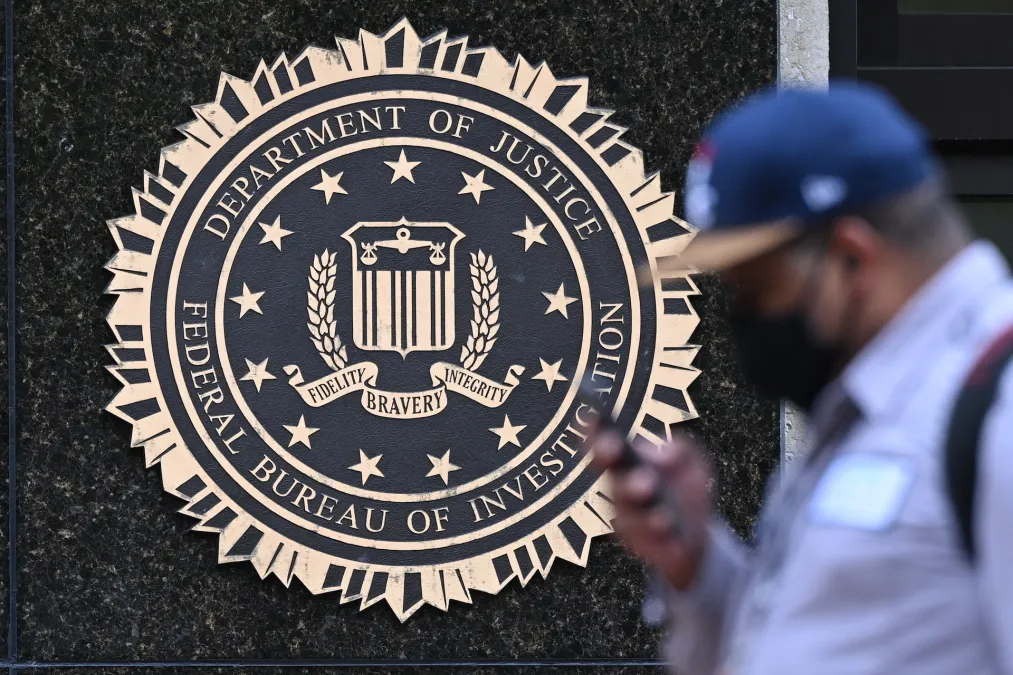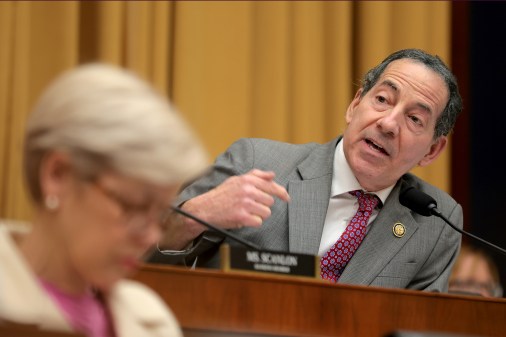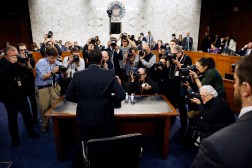Biden’s intelligence advisers recommend reforming FBI access to controversial spying tool

A board of presidential advisers recommend the White House supports a series of changes to improve compliance with the use of a controversial surveillance program, yet overwhelmingly backs reauthorization of the intelligence gathering tool, according to a report released Monday.
The report comes as Congress debates whether to renew Section 702 of the Foreign Intelligence Surveillance Act, which is set to expire at the end of the year. Lawmakers are expected to introduce legislation to reform the tool in the coming weeks.
One of the most notable of the 13 recommendations includes removing the FBI’s authority to conduct queries for non-national security-related crimes. “FBI’s use of Section 702 should be limited to foreign intelligence purposes only and FBI personnel should receive additional training on what foreign intelligence entails,” the report notes.
The report from the President’s Intelligence Advisory Board warns that repeated abuse of the spying tool by the FBI to search for the digital communications of U.S. persons has eroded public trust.
National Security Advisor Jake Sullivan and Principal Deputy National Security Advisor Jon Finer said in a joint statement Monday that the Biden administration is reviewing the recommendations. The administration has aggressively lobbied Congress to renew the authority and has suggested support for reform, but has not offered any specific proposals
“We agree with the unanimous conclusion reached by this group of independent, deeply experienced experts that failure to reauthorize Section 702 could be “one of the worst intelligence failures of our time,” Sullivan and Finer said in a statement. “We also agree with the Board’s recommendation that Section 702 should be reauthorized without new and operationally damaging restrictions on reviewing intelligence lawfully collected by the government and with measures that build on proven reforms to enhance compliance and oversight, among other improvements.”
The recommendations heavily focus on the FBI’s use of Section 702, which has come under scrutiny by lawmakers and civil liberties advocates due to a history of documented compliance issues that have resulted in improper spying on Americans, including protestors and political campaigns.
“We agree that Section 702 should be reauthorized in a manner that does not diminish its effectiveness, as well as reassures the public of its importance and our ability to adhere rigorously to all relevant rules,” the FBI said in a statement. “We look forward to engaging with Congress on the recommendations in the PIAB report, and appreciate the Board’s professionalism, expertise, and judgment in conducting this important assessment.”
In addition to FBI reforms, the report recommends establishing under the office of the President, a “centralized, external, independent review mechanism to assess the effectiveness of the entire compliance and oversight system on a regular basis, to ensure that corrective executive action is taken when required.”
The report does not call for a full warrant requirement, something many civil liberties groups want.
“We do not recommend that import because obviously when you’re first assessing whether or not the US person is the victim of a cyber attack or an effort by a Chinese intelligence officer for recruitment, you have no probable cause to believe that that person is a foreign power or an agent of a foreign power,” a senior PIAB official told reporters in a call. “So there’s there are legal limitations to getting a warrant each time not to mention the burdensome nature.”
A senior administration official expressed agreement with the conclusion.
“We fundamentally agree … that requiring a court to approve the executive branch’s querying of already lawfully collected information is simply inappropriate and operationally infeasible to deal with time-sensitive national security threats,” the official said.
PIAB report also slammed the government for failing to provide estimates of the “scope and scale” of incidental U.S. person collection, something members of Congress have also expressed concern about.
“The government has not provided a satisfactory explanation to the public for why this task is impossible nor has it offered what it could in fact estimate to help provide context for the public about the scale of U.S. person communications being incidentally collected in this surveillance program intended to target foreigners located outside the United States,” the report concluded.
Jake Laperruque, deputy director at the Security and Surveillance Project for the Center for Democracy & Technology, said the report is “out of step” with reform discussions in Congress. He said the query reform proposed by the board wouldn’t address the FBI’s improper spying on Americans since in many of the cases of abuse made public in recent months the FBI used foreign intelligence as a justification.
“The reforms proposed in this report are grossly insufficient,” he told CyberScoop.
Updated July 31, 2023: To include additional comments.





